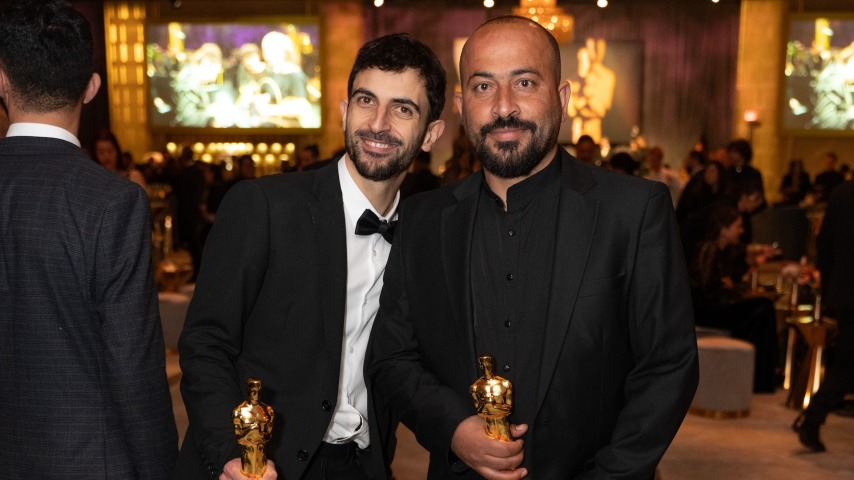“On the day of the attack,” Ballal wrote in a new op-ed for The New York Times this week, “Alongside the fear, I felt something else I didn’t expect: heartbreak. My heart was broken from the disappointment. From the sense of failure. From the powerlessness. Three weeks earlier, on the Oscar stage, I had a taste of power and possibility. But even though our movie received global recognition, I felt I had failed — we had failed — in our attempt to make life better here. To convince the world something needed to change.”
Ballal goes on to write about life in his rural village of Susiya, contrasting it with the sudden rush of being on the Oscars stage. “Los Angeles and the Oscars were of an entirely different world from the one I know: I was struck by the enormous buildings, the rushing cars, the wealth all around me. And suddenly there we were, me and my three other co-directors, on one of the world’s most important stages, accepting the award. Our stories, our communities and our voices were in the spotlight. Our struggle and our suffering were on display, and the world was watching — and supporting us.” But, he writes, the accolades for the film (which documents life in the West Bank amidst ongoing settler and military violence, and which he co-directed with Basel Adra, Yuval Abraham, and Rachel Szor) has done little to change the fact that “The main thing that steals our time is the near-daily violence and harassment of the settlers and the Israeli Army enforcing the occupation.”
Ballal ends his Times piece with a plea, acknowledging the attention that his attack provoked in the international press as a consequence of it happening to the one man in Susiya who happened to have an Oscar: “The press attention that the attack in Susiya received because of our Oscar victory was unlike anything we experienced before. The messages and voices of support around the world have been overwhelming. I know that there are thousands and thousands of people who now know my name and my story, who know my community’s name and our story and who stand with us and support us. Don’t turn away now.”
You can read the full essay here. No Other Land, which has never landed a distribution deal in the States despite its critical acclaim, is currently available to rent as part of a fundraising effort, through May 9.




































![Rob Reiner's son booked for murder amid homicide investigation [Updated]](https://img.pastemagazine.com/wp-content/avuploads/2025/12/15131025/MixCollage-15-Dec-2025-01-10-PM-9121.jpg)



